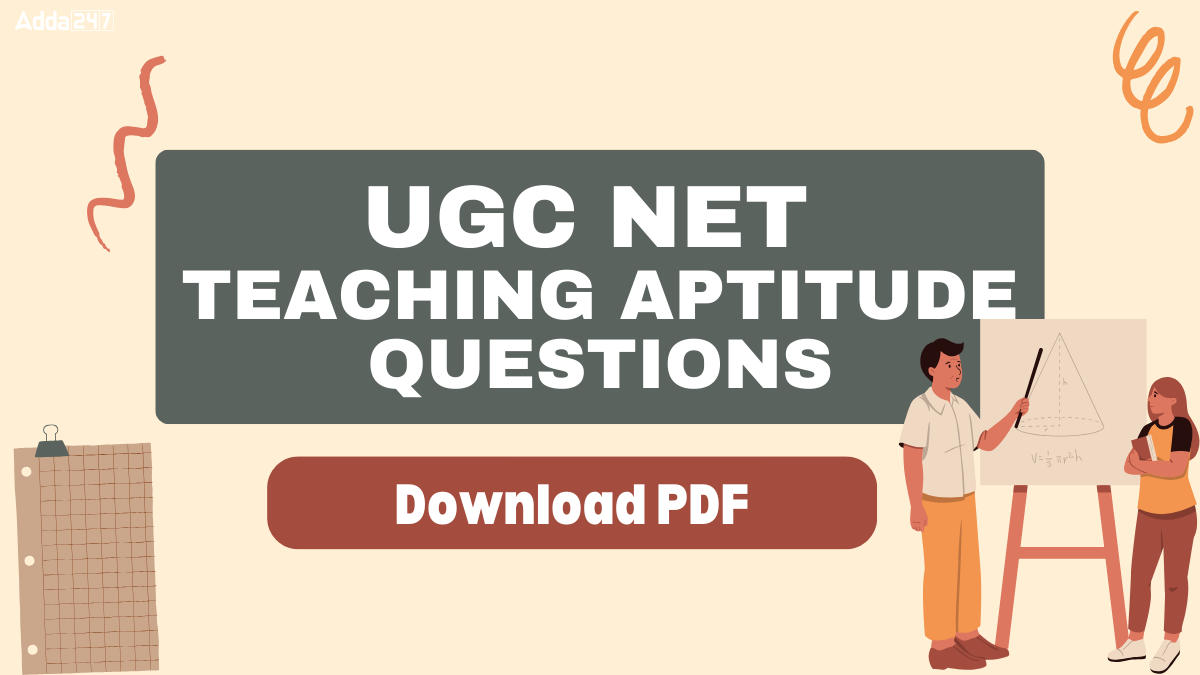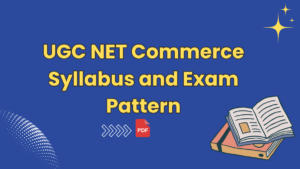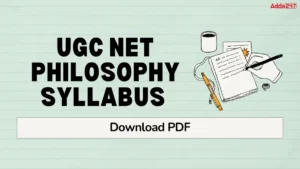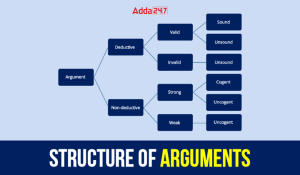Table of Contents
The UGC NET Teaching Aptitude section assesses your capabilities as a future educator. Teaching Aptitude uses Multiple Choice Questions (MCQs) to test your knowledge in various areas vital for effective teaching. These include understanding how students learn (learning theories), different teaching methods and choosing the right one for specific situations, and how to effectively assess student progress.
UGC NET Teaching Aptitude section also explores creating a positive classroom environment through management and communication skills, along with the importance of professional ethics in teaching. Here we are providing UGC NET Teaching Aptitude MCQs Questions PDF to help candidates in exam preparation.
UGC NET Teaching Aptitude
The UGC NET Teaching Aptitude section, though only worth 10 marks across 5 questions, plays a crucial role in your overall score. It assesses your potential as an educator by testing your knowledge of teaching-learning processes.
While a deep understanding of each topic is valuable, the key to success lies in developing your problem-solving skills and leveraging your inherent knowledge and abilities in the context of teaching.
| UGC NET Teaching Aptitude | |
| Name of the Exam | National Eligibility Test (UGC NET 2025) |
| Conducting Body | National Testing Agency (NTA) |
| Exam Conducted in A Year | Twice a Year |
| Mode of Examination | Online |
| Type of Questions | Multiple Choice Questions (MCQs) |
| Section | Teaching Aptitude |
| Number of Questions | 5 |
| Total Marks | 10 |
| Important Topic | Teaching, Learner’s characteristics, Factors affecting teaching, Methods of teaching in Institutions of higher learning, Teaching Support System, Evaluation Systems: |
| Negative Marking | No |
Download UGC NET Teaching Aptitude MCQs Questions PDF
Here we are providing the UGC NET Teaching Aptitude MCQs Questions PDF through the below link. Candidate can download 50 MCQ PDF for UGC NET Teaching Aptitude Questions here to help their preparation.
| UGC NET Teaching Aptitude Questions |
||
| UGC NET Teaching Aptitude – Part 1 | Download PDF |
|
| UGC NET Teaching Aptitude – Part 2 | Download PDF (English) | Download PDF (Hindi) |
UGC NET Teaching Aptitude MCQs Questions
Q1. Which of the following is not a sign of reading difficulty among young learners?
(a) letter and word recognition
(b) reading speed and fluency
(c) understanding words and ideas
(d) spelling consistency
Q2. A teacher wants the gifted children of her class to achieve their potential. Which of the following should she not do to achieve her objective?
(a) Teach them to enjoy nonacademic activities
(b) Teach them to manage stress
(c) Segregate them from their peers for special attention
(d) Challenge them to enhance their creativity
Q3. Which of the following is not a characteristic feature of intrinsically motivated children?
(a) They always succeed
(b) They enjoy doing their work
(c) They display a high level of energy while working
(d) They like challenging tasks
Q4. Which of the following is not an appropriate tool for Formative Assessment?
(a) Assignment
(b) Oral questions
(c) Term test
(d) Quiz and games
Q5. Learners should not be encouraged to
(a) ask as many questions as possible both inside and outside the class
(b) Actively interact with other learners in group work
(c) participate in as many co-curricular activities as possible
(d) memorize all the answers to questions that the teacher may ask
Q6. Which of the following statements are key features of formative evaluation?
A. Providing feedback to teachers for adapting teaching strategies to learners’ needs
B. Facilitating active and continuous engagement in learning for students
C. Enhancing the learning abilities of the learner
D. Contributing to the overall grading and certification of the learner
E. Summing up how much a student has learned over some time.
Select the correct options:
(a) A, B, and C only
(b) B, C, and E only
(c) A, B, and E only
(d) A, C, and D only
Q7. In the context of the given statements:
Statement I: A learner’s cultural background has no impact on his/her learning experience.
Statement II: Gender is not a strong predictor of academic achievement.
Select the correct answer:
(a) Both Statement I and Statement II are true
(b) Both Statement I and Statement II are false
(c) Statement I is true but Statement II is false
(d) Statement I is false but Statement II is true
Q8. Which of the following statements do not describe the characteristics of teacher-centered methods of teaching?
(A) Students are passive learners
(B) Teacher acts as a facilitator for learning
(C) Teacher directs learning activities
(D) Learning is based on collaboration between students
(E) Learning is based on student interest
Select the correct option:
(a) A, C, and D
(b) B and E
(c) B, D, and E
(d) A and C
Q9. Ruhi is shown three pencils and she observes that pencil A is longer than pencil B and pencil B is longer than pencil C. When Ruhi infers that A is longer pencil than C, which characteristic of Jean Piaget’s cognitive development is she demonstrating?
(a) Seriation
(b) Conservation
(c) Transitive thought
(d) Hypothetico – deductive reasoning
Q10. According to Jean Piaget’s theory of cognitive development, children in the concrete operational stage are capable of –
(a) Reversibility
(b) Hypothetico – deductive reasoning
(c) Abstract thinking
(d) Propositional reasoning
Solutions
S1. Ans.(d)
S2. Ans.(c)
S3. Ans.(a)
S4. Ans.(c)
S5. Ans.(d)
S6. Ans.(a)
S7. Ans.(d)
S8. Ans.(c)
S9. Ans.(c)
S10. Ans.(a)
| UGC NET Related Articles | |
| UGC NET Notification 2025 | UGC NET City Intimation 2025 |
| UGC NET Previous Year Question Paper | UGC NET Admit Card 2025 |




 UGC NET Commerce Syllabus 2025 PDF Downl...
UGC NET Commerce Syllabus 2025 PDF Downl...
 UGC NET Philosophy Syllabus 2025 PDF Dow...
UGC NET Philosophy Syllabus 2025 PDF Dow...
 Structure of Arguments in Logical Reason...
Structure of Arguments in Logical Reason...




